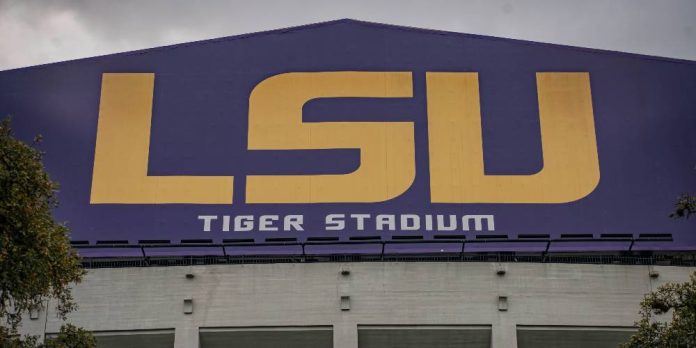In a move that has become par for the course for the Massachusetts Gaming Commission (MGC), the group chose to delay the vote on whether or not Caesars Sportsbook qualifies for an online sportsbook license in the state.
The commissioners requested additional information in multiple categories but were particularly concerned about the company’s compliance and responsible gambling measures.
MGC grills Caesars on ads in college stadium and arenas
On the compliance front, Commissioner Eileen O’Brien took exception to the application, which opted to offer information about fines upon request but failed to list significant fines. The company will need to provide additional information about these fines as well as more information regarding its responsible gambling efforts.
O’Brien was perhaps the most vocal critic of the company’s responsible gambling measures, but multiple commissioners expressed concerns related to Caesars Sportsbook’s partnerships with Michigan State University and Louisiana State University. These partnerships recently drew criticism in a New York Times article about US sportsbook advertising.
While most other sportsbook operators tout their adherence to the American Gaming Association (AGA) marketing standards, Caesars opted to highlight its internal code of conduct in its application. O’Brien found that concerning as well as the decision to advertise within college stadiums and arenas, even if they are on college campuses.
“I’m troubled by that because when we look at the research and we look at who is the vulnerable population, it goes up to 25, 26-year-olds even who are very susceptible to addiction and to the negative consequences of gambling,” she said. “This is a new addition across the country. This is obviously going to be brand new to the Commonwealth. We have a number of college students, university students, particularly in the Boston area. And the AGA standards pointedly state, ‘don’t advertise on college and university campuses’, and you guys seem to have drawn a line where putting it in a stadium is a distinction from putting it on a campus or a university. If you can explain that rationale to me and why you think that that comports with responsible gaming.”
Caesars said stadium demographics are well over 70% 21+
In answering her questions, Caesars representatives went into detail about how it came to choose these college partnerships and what responsible gambling measures were put in place internally.
“We were approached by a marketing company representing a number of universities and we evaluated those in the context of the goal of bringing our brand forward and presenting it to their alumni,” Co-President of Caesars Sports and Online Gaming Eric Hession explained. “We also reviewed the statistics of the stadiums to ensure that a very high percentage of the attendees were over 21 and that the average age was significantly over 21.”
“We looked at the demographics of where these materials would be presented and they were far north of 21, north of the additional age of 25, 26 as you mentioned,” Caesars SVP of Regulatory and Compliance Jeff Hendricks added. “Additionally, the goal was to reach out to alumni that would be well over the legal age to wager and associate that group with what we were offering at Caesars Sportsbook. I appreciate licensees can take multiple different approaches to wagering, and not everyone will agree with the decision, but we did design numerous controls to try and very clearly restrict marketing to those under the age of 21.”
Caesars elaborated on some of how this data was collected and determined in a confidential executive session, as multiple commissioners, including Commissioner Bradford Hill, had a hard time reconciling how over 70% of a college athletic event could be above the age of 21 or even 25. O’Brien also noted that a commissioned report delivered to MGC suggested the percentage threshold for the state should be even higher, as high as 85%. Since the MGC has not done its regulations, a threshold that high could be put into place.
Caesars did tell MGC they have every intention of complying with any and all responsible gambling regulations put into effect in the state.
Commissioner Jordan Maynard did come to the defense of Caesars, noting that in the specific instances of LSU and MSU, the fanbase is different from a typical college, as these teams are treated like the professional teams for their region when it comes to fandom. He cited his home state of Kentucky and noted that the fandom for the University of Kentucky that attends games are predominantly alums and locals, not students.
Caesars will not pursue future partnerships with colleges or universities
When asked about future collegiate partnerships, Caesars said this would not be something they would be doing with other universities, especially not in Massachusetts.
“I can tell you we don’t have any plans to pursue such a relationship within the Commonwealth, nor are we pursuing relationships elsewhere,” said “These are limited scope that took place in 2021. We refined how we rolled out our product, how we engaged with our customers, and this is not an active part of our strategy going forward.”
When asked by O’Brien if they intend to continue working with MSU and LSU, the company was less willing to state they would terminate those relationships.
“So long as we can maintain them in a way we think adheres to all of the principles and controls we put in place, we do expect to do so,” Hendricks said.
Connecticut Sen. Richard Blumenthal recently penned a letter to Caesars CEO Tom Reeg calling on him to terminate these deals. This is the first time Caesars has commented on those partnerships since that open letter.













